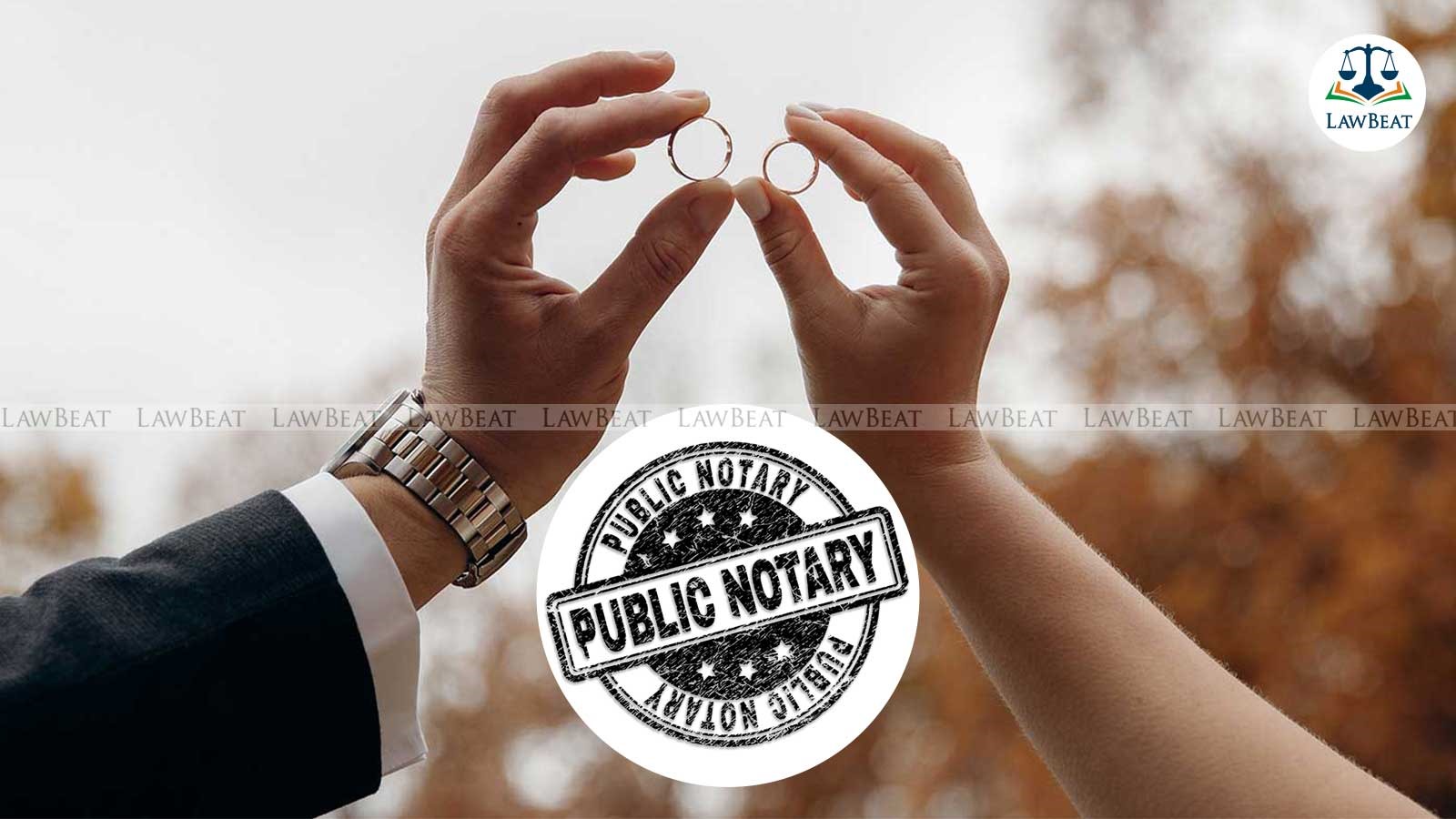Notaries Cannot Execute Marriage and Divorce Deeds : Law Ministry Issues Directions

The memorandum clarified that “Execution of marriage or divorce affidavit is not the function of the Notary”
The Department of Legal Affairs under the Union Ministry of Law and Justice has issued a clear directive instructing all Notaries to refrain from executing marriage and divorce deeds, reiterating that such activities fall outside the ambit of their legally defined roles. The directives were issued to all notaries appointed by the Central Government, emphasising that Notaries are not appointed as Marriage Officers, and actions contrary to this legal position would be considered professional misconduct under Rule 13 of the Notaries Rules, 1956, leading to disciplinary measures, including removal from the Register of Notaries, as per the provisions of Section 10 of the Notaries Act, 1952.
The Office Memorandum (OM), signed by Rajeev Kumar, Deputy Secretary to the Government of India, pointed out that the profession of Notaries is regulated by the Notaries Act, 1952, and the Notaries Rules, 1956. Under Section 3 of the Act, Notaries may be appointed by the Central or State Governments, provided they possess the required qualifications. However, the duties and functions of Notaries are strictly outlined in Section 8 of the Notaries Act, 1952, and Rule 1 of the Notaries Rules, 1956, and these do not include the execution of marriage or divorce deeds.
The OM stated, “Execution of marriage or divorce affidavit is not the function of the Notary. The functions of Notaries as envisaged ni Section 8 of the Notaries Act, 1952 and sub-rule (8) of Rule 1 of Notaries Rules, 1956 do not authorise any Notary to notarise an affidavit of marriage or divorce. Neither the Notary is authorized to certify the marriage nor competent to execute the divorce deed under the Notaries Act, 1952 and the Notaries Rules, 1956. A Notary has not been appointed as a Marriage Officer.”
It was further highlighted that despite this established legal framework, the Ministry has observed instances where Notaries have been found executing documents related to marriage and divorce. Additionally, it has also been noted that some Notaries are issuing Marriage Certificates or facilitating declarations of marriage, which could lead to far reaching consequences.
The OM referenced judicial precedents, including the rulings by the Orissa High Court, in Partha Sarathi Das v. State of Orissa and Others, and the Madhya Pradesh High Court, in Mukesh S/o Mr. Lakshman @ Lakshminaryan v. The State of M.P. and Bundel Singh Lodhi v. State of M.P., where it was established that Notaries are not empowered to act as Marriage Officers. Further, the Supreme Court’s verdict in Bhagwan Singh v. State of U.P was cited, which echoed the stance of the High Courts, underscoring that any act by a Notary that violates the Notaries Act, 1952, constitutes professional misconduct.
“It is brought to the notice of all concerned that Notaries appointed under the Notaries Act, 1952 should desist from executing marriage or divorce deeds as they are not appointed as Marriage Officers. Such actions on their part are against the extant law. Any omission or commission of the Notaries Act, 1952 or the Notaries Rules, 1956 in this regard on the part of any Notary will tantamount ot misconduct and action will accordingly be taken against such Notary in accordance with the provisions contained in Notaries Act, 1952 and Notaries Rules, 1956,” the OM clarified.
